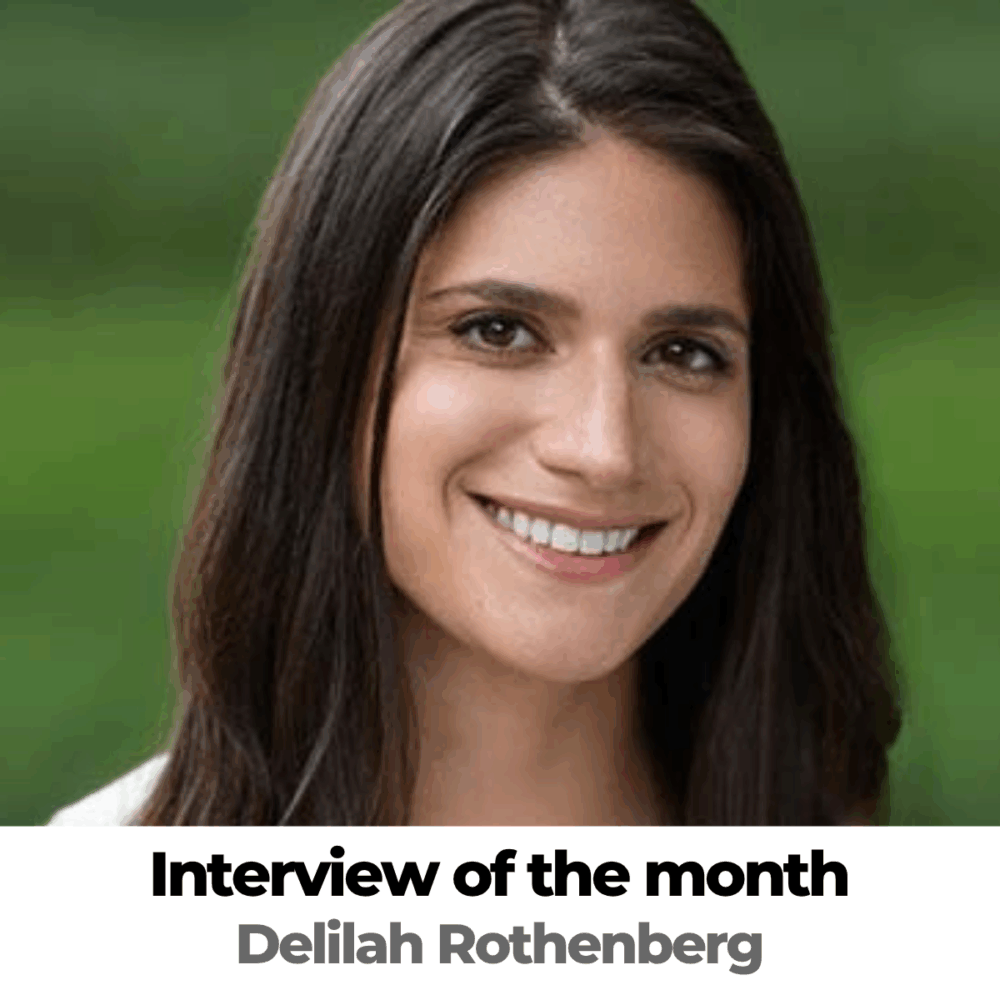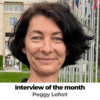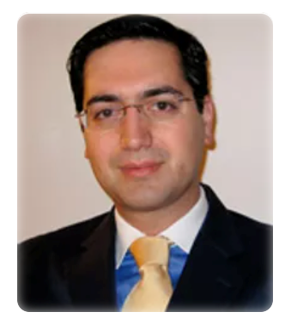
Interview of the Month: Delilah Rothenberg
This week we had the pleasure of speaking with Delilah Rothenberg, the Co Founder and Executive Director of the Pre-Distribution Initiative. In this interview, she breaks down the concept of pre-distribution and discusses how extreme wealth and market concentration can lead to systemic and systematic risks, and financial instability. She makes the case for giving workers and communities a seat at the proverbial table with financial capital owners as a means of addressing imbalances in wealth and power that are disrupting markets, social cohesion, and wellbeing.
The term “pre-distribution” is intriguing, what exactly does it mean?
Predistribution is an incredibly wonky-sounding but exciting concept. It offers compelling, constructive, and balanced solutions to rising populist grievances with the current economic system.
Originally conceived by the academic Jacob Hacker, in 2011, predistribution involves fixing the economic systems through which wealth is created in the first place, so that people don’t have to be dependent on redistribution after production cycles. It addresses root causes of inequality through better valuing people and nature.
If we better value people – such as workers, communities, and consumers – we have less incentives to shift risk to them. For those who do take risk – such as workers, or communities hosting an infrastructure project – we more adequately compensate them for this contribution to the production cycle, and perhaps even respect their agency to negotiate what levels of risk they are willing to take for what level of compensation.
So instead of workers getting squeezed on wages with no bargaining power, we see – for example – strengthened freedom of association and collective bargaining, workforce-appointed board directors, employee ownership of equity alongside corporate executives and investors, better access to adequately priced capital by small businesses and emerging economies, more individual versus institutional home ownership, among other meaningful interventions.
And if we better value nature, we have less incentives to exploit it, and more incentives to compensate people to conserve it. An example of an emerging investment structure based on this dynamic is debt-for-nature swaps, whereby nature is valued to the point where debt is considered – essentially – repaid.
These measures prevent large disparities from arising in the first place, thus reducing the need for extensive redistribution later on. Predistribution is not a shift away from capitalism, but rather introduces preventative measures to avoid major imbalances which would otherwise cause capitalism to destroy itself – because extreme wealth and market concentration can lead to systemic and systematic risks and financial instability from social unrest, extreme protectionism, asset bubbles and credit crises, or destruction of nature on which production depends.
Predistribution acknowledges the risk taken and value created by workers, small businesses, and communities alongside investors and corporate executives. It promotes long-term stability by reducing the political and social tensions that often accompany high levels of inequality. And it can allow institutions like investors, policy makers, regulators, and corporate executives to rebuild trust with the public in the co-creation of the post-neoliberal economy.
It is clear that workers and communities are central to the concept of pre-distribution and, why is that?
If you think about the basics of economics, companies exist to produce products and services for consumers. If the products and services are priced well and of good quality, then you’ve got demand. If you pay your workers well and treat them well, then you will attract good labor (labor market elasticity issues considered, as well). That should attract capital, if the business seeks it.
There should be a balance between all of these interests, but markets have evolved to value financial capital more than other inputs into a transaction. So financial capital gets a seat at the corporate table when it comes to governance. And financial capital gets more of the return versus other stakeholders. Financial capital has also sought to align the interests of corporate executives with its own, thereby contributing to corporate executives being compensated in equity. This structure has resulted in CEO pay of America’s top companies skyrocketing over 1000% since 1978 versus worker pay which has only risen by about 24%.
One has to wonder if this means financial capital is now competing – with an unfair advantage – over other inputs into the production cycle, which may be throwing markets and economies out of balance.
So at PDI, we aren’t prioritizing one stakeholder group over another, but we are very concerned that workers and communities have not had adequate representation in the past decades of neoliberalism, and this may be contributing to significant populist angst, and even the sustainability and ESG backlashes as workers and communities feel left behind, unheard, and undervalued. At the end of the day, we also recognize that many workers and community members may be shareholders – for instance in their pensions or 401ks. So this isn’t about prioritizing one stakeholder over another, but avoiding vast imbalances in wealth and power that seem to have now disrupted markets in addition to social cohesion and wellbeing.
What kind of work does the Pre-Distribution Initiative do to embed the concept of pre-distribution into financial systems and capital markets?
We have three workstreams.
Our first workstream focuses on research and two key questions: 1) What are the pathways through which investors impact or influence outcomes for end stakeholders and nature, and how can we enhance positive impacts and avoid negative impacts? 2) How do those positive and negative impacts accumulate across actors in the economy to become systemic and systematic opportunities and risks for the economy, financial markets, and investors’ diversified portfolios? This research thus illustrates the investment case for caring about predistribution – both for diversified investors and central banks – as well as the pathways through which investors can engage in this practice.
Our second workstream focuses on developing the enabling environment and tools for investors to better value people and nature. At the corporate level, this involves shifts in accounting, and we are thrilled to have partners like the Capitals Coalition, Social Value International, and Rethinking Capital who are advancing this important work. At the investor level, this involves development of financial analysis tools to better integrate systemic and systematic factors – like climate, nature, and inequality – into investment decision making. This involves adjustments to methodologies relating to financial benchmarking and capital markets assumption practices so that investment teams can be evaluated on long-term systemic performance versus traditional financial benchmarks which don’t consider externalities. It also involves considering alternatives to traditional discount rates and time-value-of money valuation approaches, since prioritizing a dollar today over a dollar tomorrow has inherent tensions with long-term sustainability. Core partners on the investor-level work are the Responsible Asset Allocator Initiative (RAAI), where we are stewarding this project with two former sovereign wealth fund Chief Investment Officers, as well as the Externality Investment Research Network (EIRN).
The third workstream supports investors and fosters the enabling environment to better value people and nature. Once you value people and nature, as alluded to earlier, the terms of a deal change. We end up with more regenerative investment structures like employee ownership of operating companies, community ownership of real assets, Board directors who bring the perspectives of core stakeholders of a company, debt-for-nature swaps, revenue based financing, other forms of debt restructuring, among others. In this workstream, PDI is raising awareness about these models and their opportunities, challenges, pros, and cons. In this sense, in addition to educating investors about new opportunities, we also feed back into the first workstream, where we evaluate what is and isn’t working in markets, capital allocation, valuation methodologies, and investment structures, through a closed-loop iterative cycle of constant self-reflection and refinement.
What do you think are the most important systemic risks currently overlooked by investors? How could they be better addressed?
Reducing socioeconomic inequality was our core focus when we first started PDI six years ago. We expanded our focus to climate change and nature loss given stakeholder interest and a recognition that the root causes of these issues are shared. But inequality has always been at the center, and we are doubling down on this as our primary focus.
Whether one is concerned about climate change, nature loss, trade wars and geopolitical conflict, automation and artificial intelligence, systemic health challenges, and/or financial returns and stability (together shaping today’s “polycrisis”), all these issues are shaped and shared by a common denominator – people. And the most effective and lasting solutions will be co-created. But not if there is vast inequality that gives rise to deep tensions and political gridlock. Addressing socioeconomic inequality is a prerequisite to reversing the polycrisis.
We are at a moment in time where socioeconomic inequality has seeded a deep mistrust in established institutions, urban centers, and “cultural elites.” While not everyone shares this mistrust, arguably there are significant enough numbers of people where we have reached a tipping point. The result is a general willingness to break the foundations of society as we know it today just to see some meaningful change, because more moderate interventions are not making the cut.
Consider these stark statistics underscoring current affairs:
- According to the Federal Reserve, the top 1% of US households now holds nearly as much wealth than the bottom 90% combined (30.8% vs. 32.8%).
- Approximately 44% of Americans aren’t earning a living wage – meaning they are not even able to make ends meet. Recent analysis from Moody’s Analytics indicates that households in the top 10% of earners (those earning $250,000 or more annually, who also happen to own 93% of stocks) now account for nearly half (49.7%) of all consumer spending, a significant increase from three decades ago and noted by some as the widest gap on record. Meanwhile, the Federal Reserve still maintains a mandate and toolkit based on the concept that wages and employment are primary drivers of inflation, potentially resulting in monetary policy that will just deepen economic inequality.
- Pew Research highlights how 61% of Americans believe economic inequality is too high, with only 30% believing the economic system is fair.
- A 2021 Ipsos Survey conveys that 70% of respondents believe “the main divide in our society is between ordinary citizens and the political and economic elite,” and 72% feel that these influential circles “don’t care about hard-working people.”
While these statistics are heavily based on American attitudes, one can see similar patterns across the world, including in the UK and Europe, Latin America, some parts of Asia and Africa, and Oceania.
Core to our theory of change at PDI is the motto from the disability rights movement, “nothing about us without us.” We believe the most lasting and effective change will come from co-created solutions, but this is not possible with vast imbalances in wealth and power across society.
If you had a magic wand and could change one thing about the current financial system, what would it be?
I may sound like a broken record (apologies!). But I do think that core to the polycrisis that affects everyone is rebalancing the economy to better center workers and communities – this means sharing more wealth and influence with them through multistakeholder ownership and governance models. And with the rise of AI and automation, we are on the cusp of potentially losing the opportunity to really design an economy that works for all of us, because these technologies are currently being programmed, owned, and dominated by few individuals in the economy who hold wealth and power. Now is the time to act, because given the exponential advancements expected from AI, we will either see a concentration of the status quo or the creation of something more beautiful in the interests of broader society.




